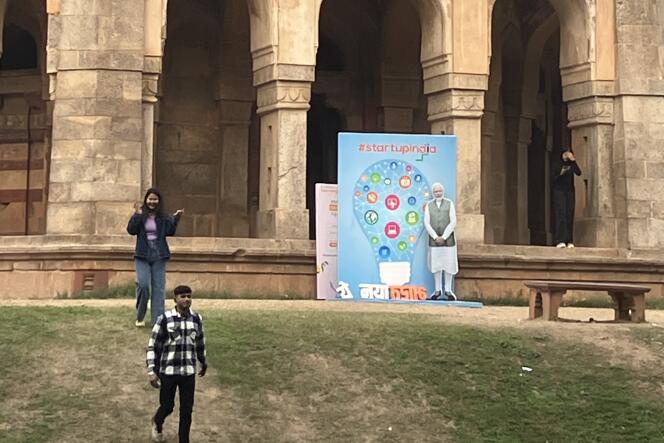

LETTER FROM NEW DELHI

Indian trains are often late. To pass the time, passengers will soon be able to take selfies with Narendra Modi. The Indian prime minister may not have the gift of omnipresence, but around a hundred stations across the country will soon be equipped with temporary or permanent selfie booths featuring a life-size 3D replica of him.
This information might have gone unnoticed if a retired railway official, Ajay Bose, had not exercised his right to information with the administration concerned, which acknowledged the operation and detailed its price. Each permanent installation costs 625,000 rupees (around €6,800), while temporary installations cost 125,000 rupees (around €1,360). "Selfie points" have already been set up in several of the capital's museums and even in parks, while circulars have been sent to universities and the armed forces asking them to follow suit.
This initiative seems almost banal in India, where the cult of personality has dominated since the Hindu nationalist came to power nearly 10 years ago. Modi is already omnipresent in the media – mostly controlled by businessmen close to the government – on the streets and in airports, where giant billboards bearing his effigy are displayed. Even the bags of food rations distributed to 800 million poor people carry his photo, as do vaccination certificates. The government spends huge sums of money every day on advertising space to glorify the prime minister.
The powerful Indian leader has even given his name to the largest cricket stadium in the world, located in Ahmedabad. The stadium, which hosts sporting competitions as well as political rallies, is a favorite venue for Modi, especially when he visits Gujarat, his former stronghold.
Leaders of the Congress, the main opposition party, have expressed concern about this taxpayer-funded campaign, which is taking place just weeks before the general elections due in the spring. "The shameless self-promotion of the prime minister and the ruling party at the expense of the honest taxpayer is such a blatant misuse of government resources that, in any other democracy, would be condemned and lead to a taxpayer revolt," tweeted Congress MP Shashi Tharoor. "In India, we are unfortunately inured to indulging the capricious whims and fancies of our rulers," he also pointed out. During Indira Gandhi's tenure as prime minister from 1966 to 1977, and then from 1980 until her assassination in 1984, India had already experienced a cult of personality, but never to this extent.
You have 45% of this article left to read. The rest is for subscribers only.
